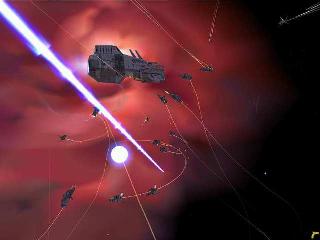Your new Home is calling…tell your other games not to expect you for a while.
I vividly remember the first thing I thought when I saw the holographic representations
of the invasion plans for Endor in Return of the Jedi. Watching the admirals
and generals map out their interstellar strategies in 3D, I thought, "Wow!
Something like that would make a…
-
Clever, intuitive interface
-
Innovative gameplay
-
Rich gaming experience
-
No difficulty options...Hard.











